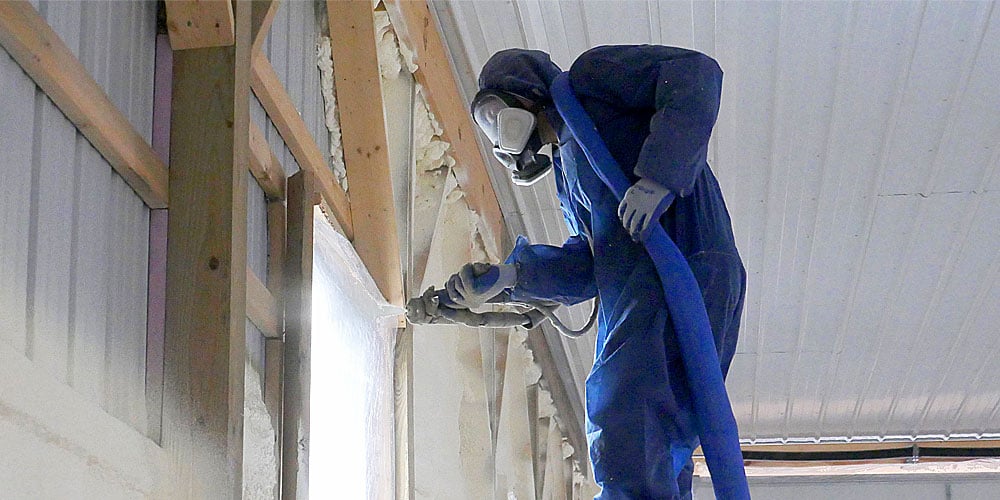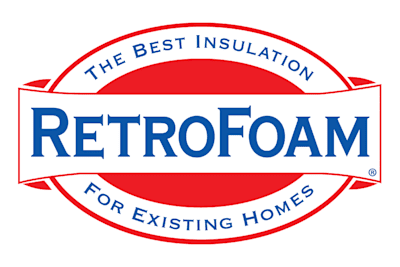Problems with Closed Cell Spray Foam Insulation
spray foam insulation | closed cell spray foam insulation | foam university


Welcome to the world of insulation, where closed cell spray foam often wears the crown.
But is it truly the king of all insulators for your home? Let's dive in and figure out what's really behind this popular choice.
Closed Cell Spray Foam Insulation: The Hyped Hero
If you've been scouring the internet or chatting with contractors, you've likely been bombarded with praises for closed cell spray foam.
Boasting a high R-Value, waterproof in nature, and adding structural integrity, it's no wonder it's often touted as the ultimate insulation solution.
But before you jump on the bandwagon, let's unpack some truths.
Potential Pitfalls: Closed Cell Spray Foam Insulation Problems
Not all that glitters is gold.
While closed cell spray foam is an excellent option for some projects, there are others where it’s not. Here are some examples of problems that could arise with closed cell spray foam.
Electrical and Plumbing: The Hidden Hassles
Here's where the social media electricians finally get their "I told you so" moment.
Closed cell spray foam, while excellent in sealing and insulating, becomes a formidable foe when it comes to rewiring or plumbing adjustments.
Its tough and rigid nature makes it a challenge to work with, often requiring power tools to modify. So, think twice if future wiring changes might be on your to-do list.
Attic Insulation and Roof Leaks: A Double-Edged Sword
Insulating your attic with closed cell spray foam sounds like a great idea until Mother Nature decides to test your roof's resilience.
This insulator can be quite effective, but it also has a sneaky side: concealing roof leaks.
The leak, hidden beneath the impermeable closed cell layer, can spread and cause more damage than expected. It's a rare but noteworthy risk for your attic insulation decision.
Closed Cell Spray Foam Insulation Pros and Cons
Let’s jump right into where closed cell spray foam shines and which insulation is the superstar for residential projects.
When Closed Cell Shines
Despite the potential downsides, closed cell spray foam is an exceptional product, especially for commercial applications or pole barn constructions.
In these scenarios, its properties are best utilized, offering both insulation and structural reinforcement.
The Residential Realm: Open Cell as the Unsung Hero
In contrast, open cell spray foam often takes the lead when it comes to residential applications.
It's more forgiving in terms of rewiring or plumbing modifications and less risky regarding concealed roof damage.
The Bottom Line: It's All About Context
Both open and closed cell spray foams are excellent products, but their suitability greatly depends on the specific application.
Understanding your home's needs is key to making the right choice.
Learn More: Dive Deeper into the World of Insulation
Curious to learn more? Visit our Learning Center.
You'll find a treasure trove of articles, videos, and blogs that delve deeper into the world of insulation, including the nuanced world of closed cell spray foam.
And there you have it, a comprehensive look at closed cell spray foam insulation. Whether it's the right choice for your home depends on several factors, but armed with this knowledge, you're well on your way to making an informed decision.
Related Articles
Why Closed Cell Spray Foam Insulation is a Popular Choice for Homeowners
Installing Spray Foam Insulation in Metal Buildings When It’s Cold
What is the Difference Between RetroFoam Injection Foam and Spray Foam Insulation?
About Eric Garcia
Eric brings his knowledge and training in building science, training in spray and injection foams from the manufacturers, more than eight years installing foam insulation, as well as selling and managing in the foam insulation industry. He is also BPI and Dale Carnegie certified and has taken several building science courses, including air sealing and building envelope. Eric is the Professor of Foam on our educational YouTube series Foam University. Even when Eric is off he is usually still “working” or thinking about work, but when he can get away he enjoys camping, hiking, hunting, and woodworking.


